Village set for 'spectacle' of explorer's reburial
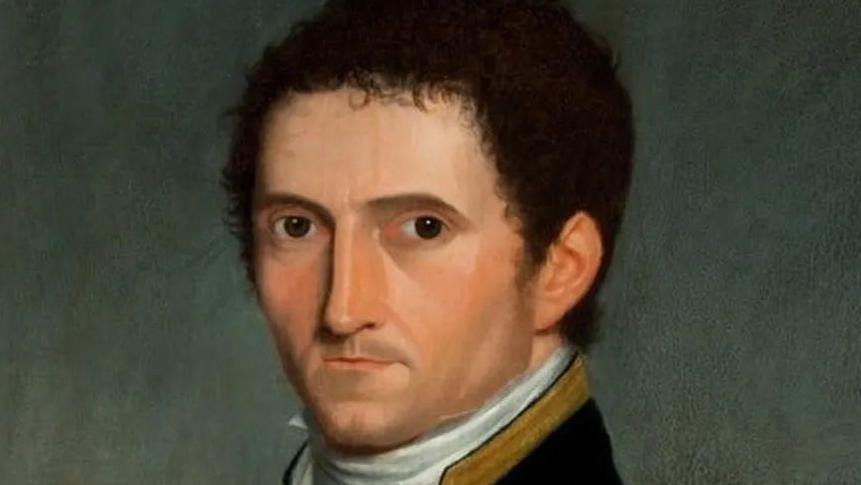
Capt Matthew Flinders led the first circumnavigation of Australia, and is credited with naming the continent
- Published
A Lincolnshire village is preparing for hundreds of guests to attend the reburial of a 19th Century explorer credited with mapping and naming Australia.
The remains of Capt Matthew Flinders are being reburied in Donington, the village of his birth, on 13 July.
The exact location of the explorer's remains was lost in the mid-1800s, but were rediscovered in 2019 during work on HS2 in London.
Volunteers said they were "tremendously excited" as they prepared for the reburial ceremony, which will include a parade and ceremonial gun salute by the Royal Navy.
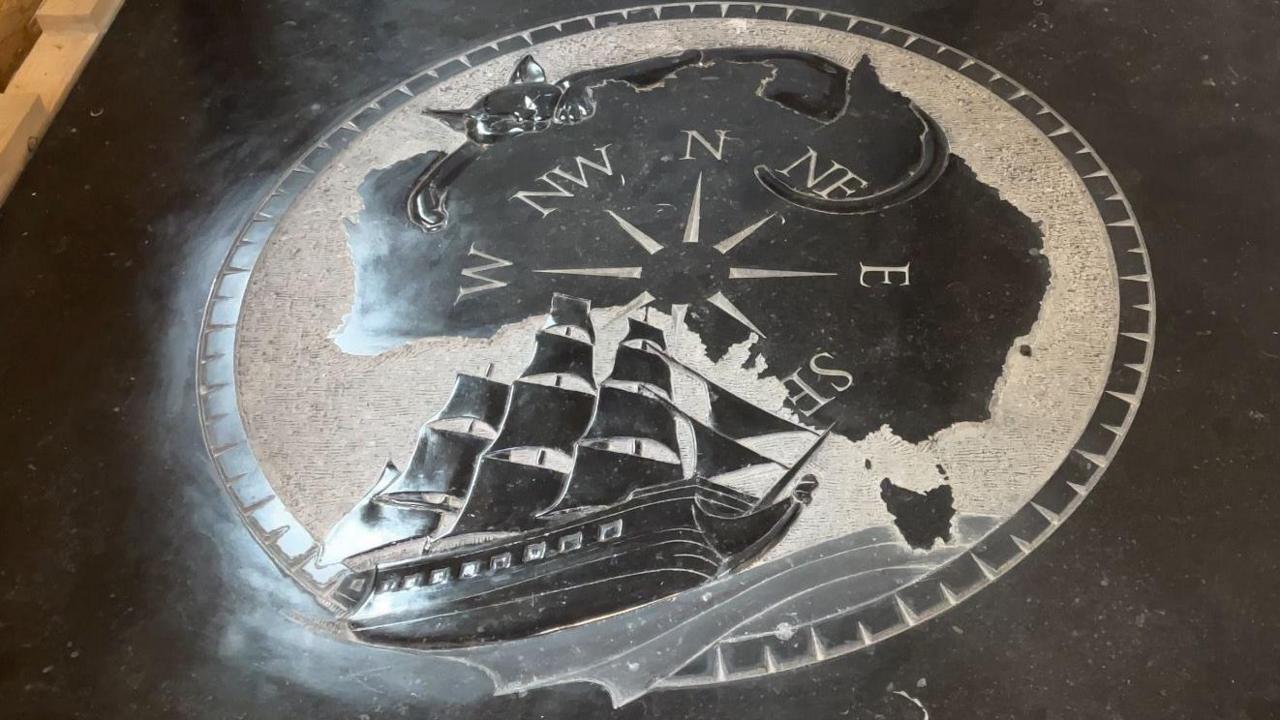
Capt Matthew Flinders's grave will be covered by this tonne of black marble featuring an engraving of Australia, the HMS Investigator and his cat Trim.
About 400 people, including dignitaries from Australia and Mauritius, are expected to attend the ceremony.
As a naval captain, Capt Flinders will receive an 18-gun salute and pallbearers from the Royal Navy's state ceremonial team will carry his coffin.
Jane Pearson, who spearheaded the campaign to bring Capt Flinders's remains back to Donington, said: "It will be a huge event for the village.
"Something that I think the village has never seen before and probably will never see again, to see a spectacle of this size.
"The generosity we've had from people to make this whole thing happen is wonderful."
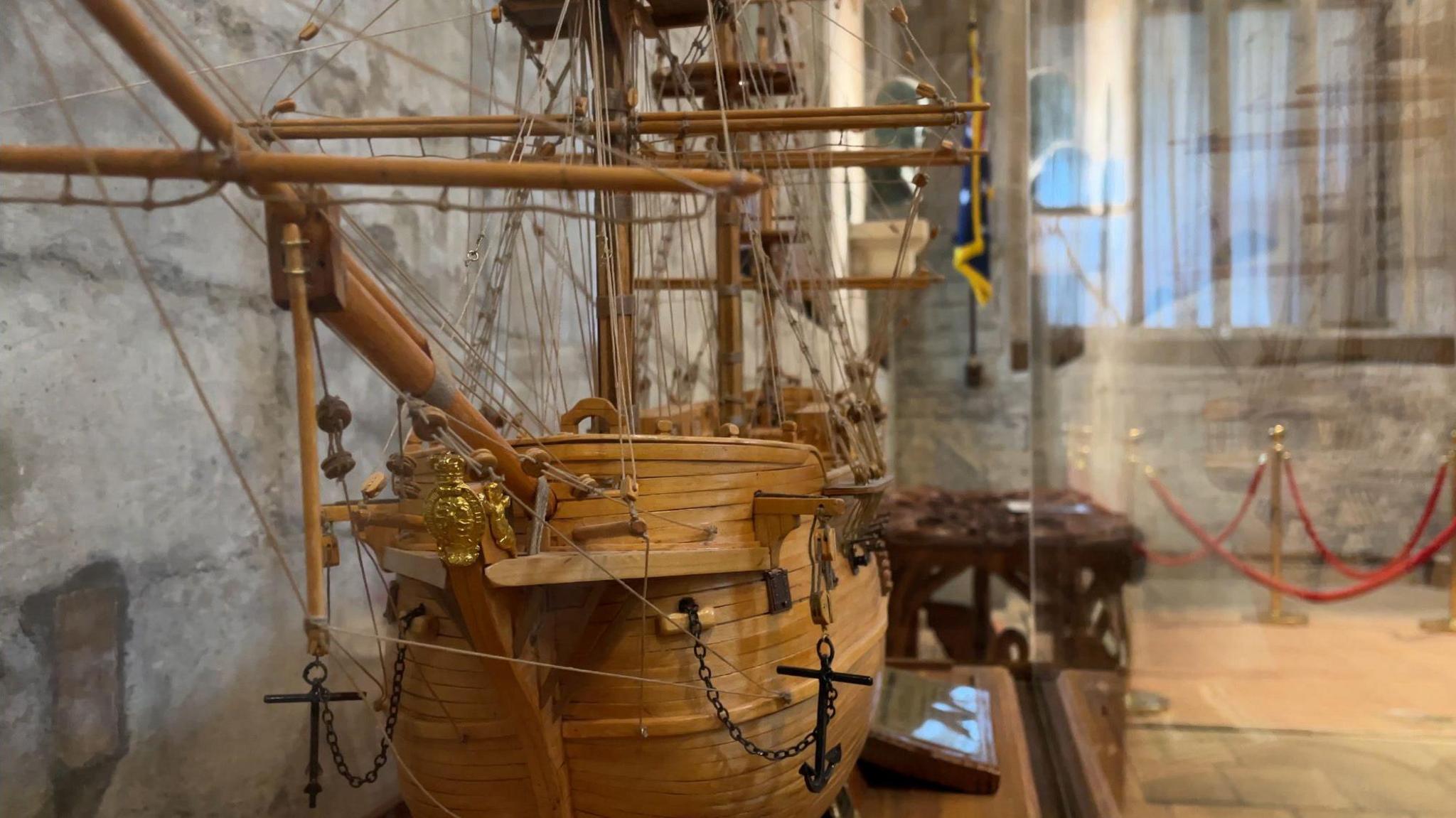
A model of Capt Flinders's ship, HMS Investigator, has been donated to St Mary and the Holy Rood Church in Donington
Among the donations are a replica of Capt Flinders's ship the HMS Investigator, which has been given to the church by the Adelaide-based Seven Seas Club of Australia.
A rare tree native to Australia has also been planted in the churchyard by local enthusiast Howard Lucas.
Kew Gardens describe the Wollemi pine as critically endangered, external.
Speaking about the tree, Eleanor Stevenson, a volunteer involved in planning the reburial ceremony, said: "We're ever so lucky to have this in the UK.
"We've got nothing like this in the UK other than in RHS Gardens and things like that."
The tree is so rare Kew Gardens has asked the team at the church to collect mature pine cones for propagation.
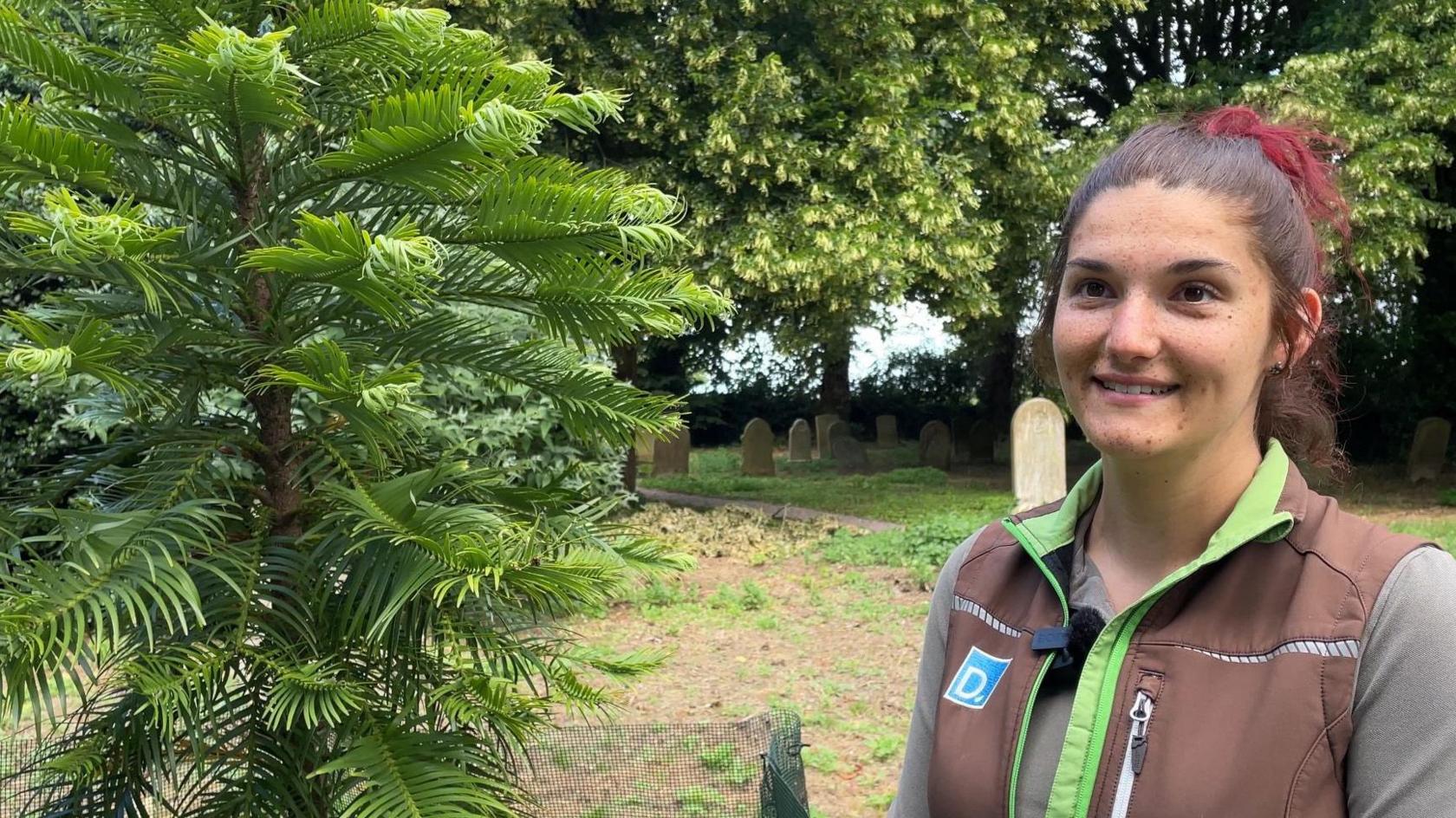
Volunteer Eleanor said "it's incredible" to have the rare Wollemi pine, left, in the Donington churchyard
The weekend of events has taken five years to arrange for Ms Pearson, who said it has been an "all consuming" task.
"I'll be delighted that we'll have actually achieved what we set out to achieve five years ago," she said.
"But it has been a huge project. I shall be looking forward to a rest."
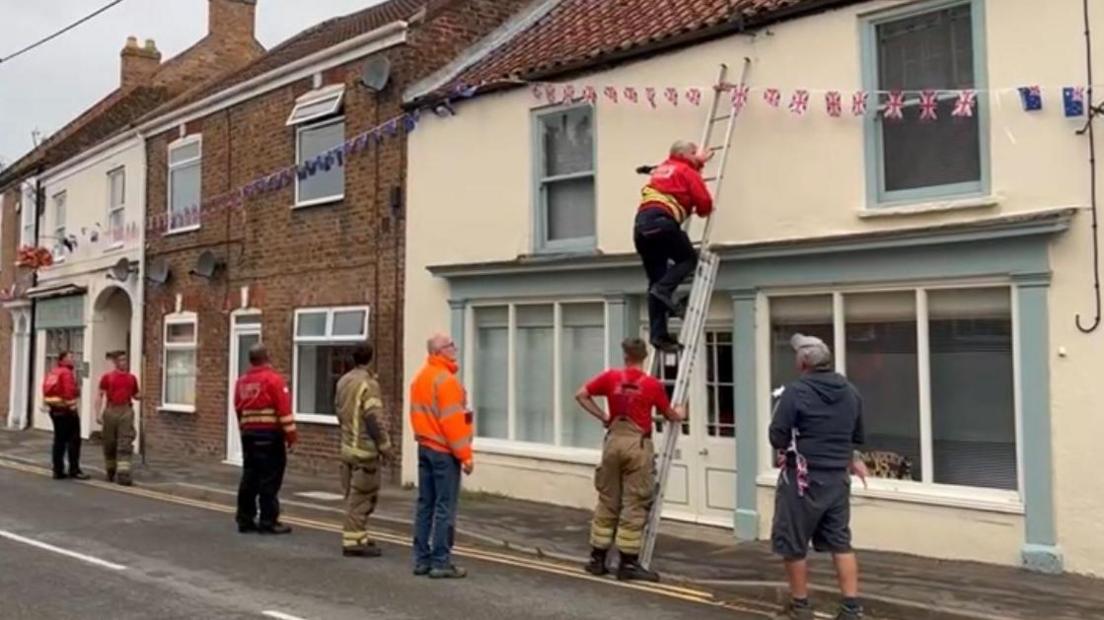
Bunting has been put up around the village ahead of the celebrations
Flinders reburial timeline on July 13:
10:00 BST: Church bells will start ringing, and will ring until the reburial service.
12:00: Party in Flinders Park in Donington with fairground rides.
13:45: Flinders's hearse arrives in Donington village.
14:00: Slow parade of the hearse ends on Church Street. The coffin will be removed and carried through the village, passing by Naval Standards and a Navy guard of honour.
14:30: A Naval firing party will fire a salute for Capt Flinders before a church service led by the Bishop of Lincoln begins.
15:30: Service ends.
17:00: Party in Flinders Park.
22:30 Fireworks to end celebrations.
Listen to BBC Radio Lincolnshire's preview of the event here.
Follow BBC Lincolnshire on Facebook, Twitter, external, and Instagram. Send your story ideas to eastyorkslincs.news@bbc.co.uk, external
Related topics
- Published6 August 2023
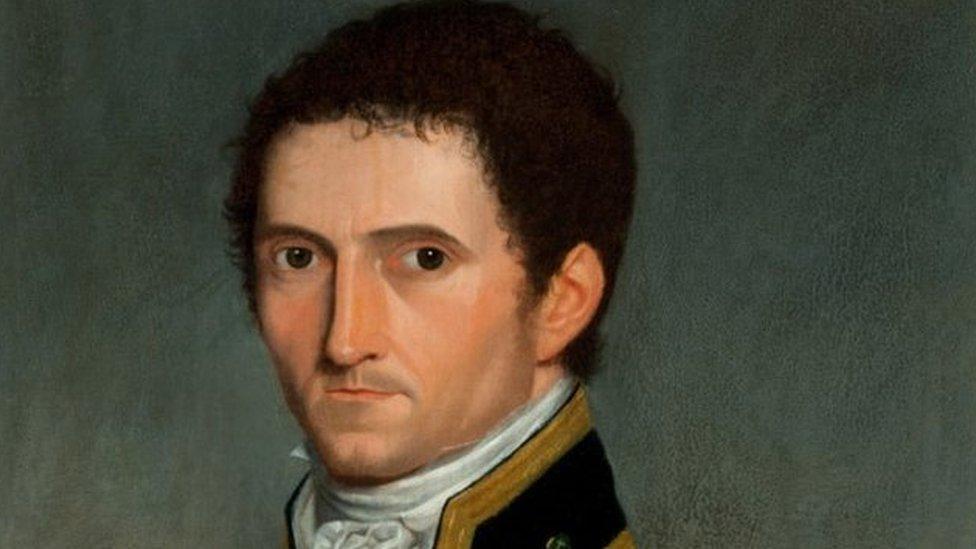
- Published25 April 2024
- Published25 January 2019
